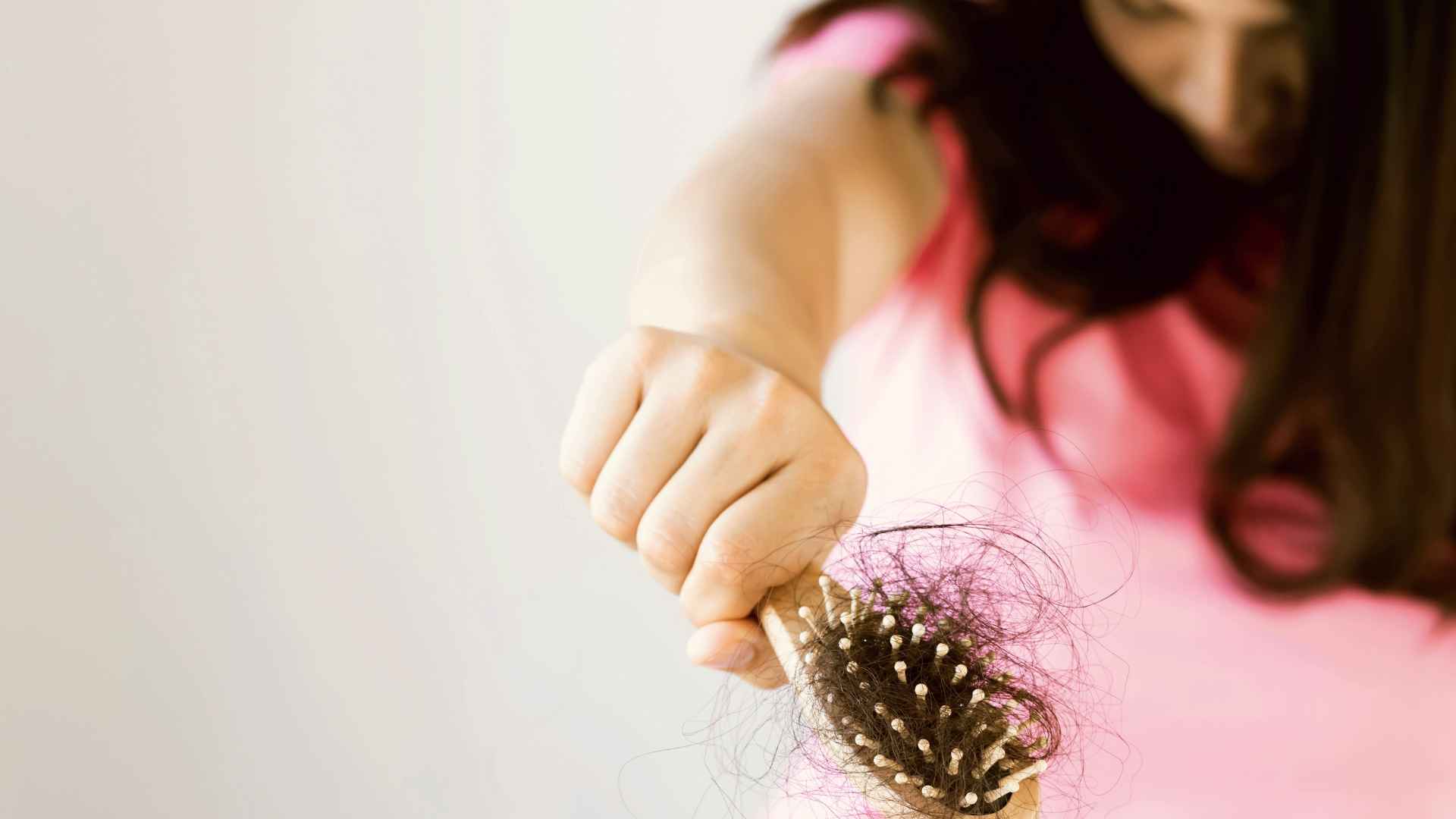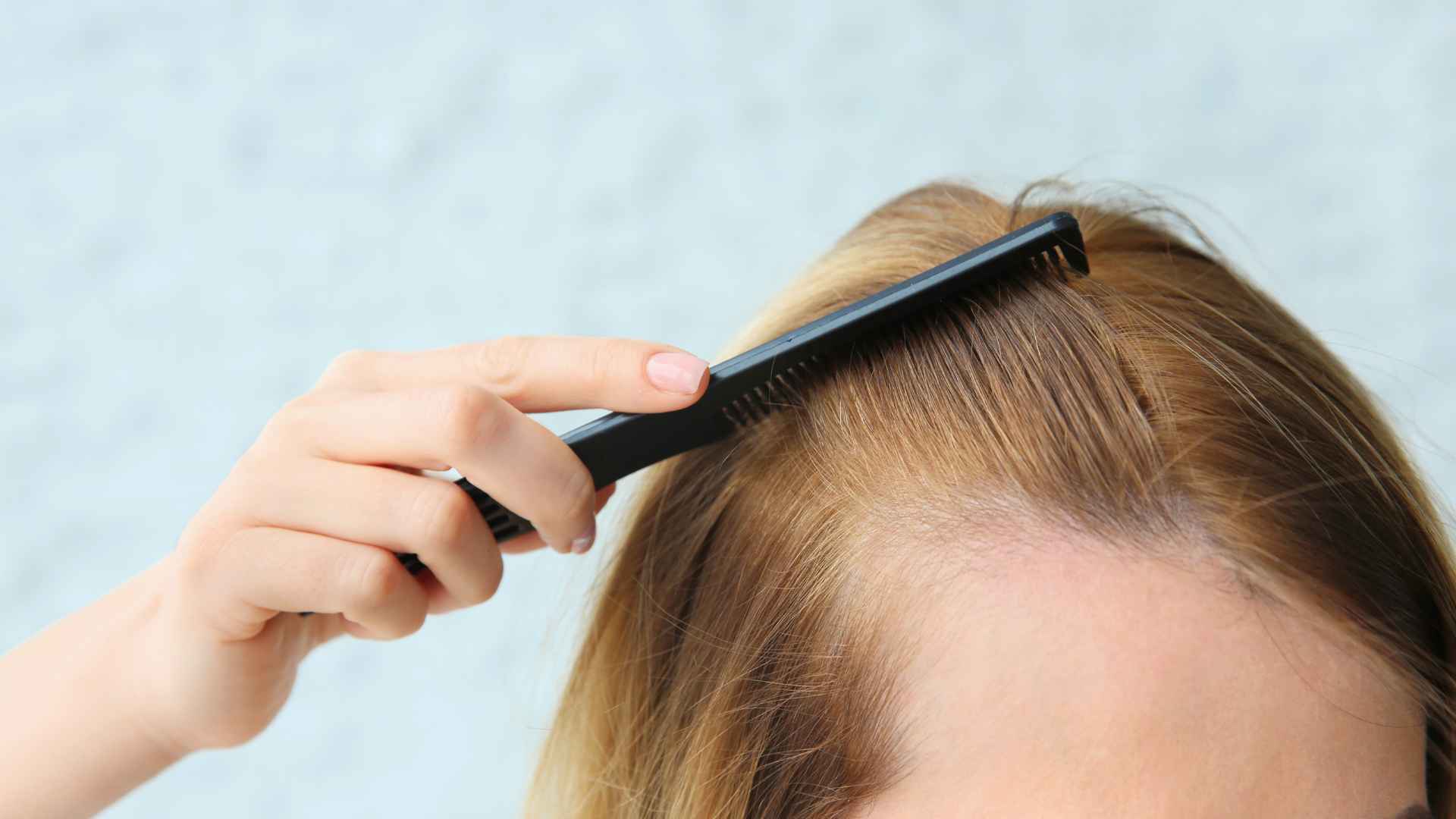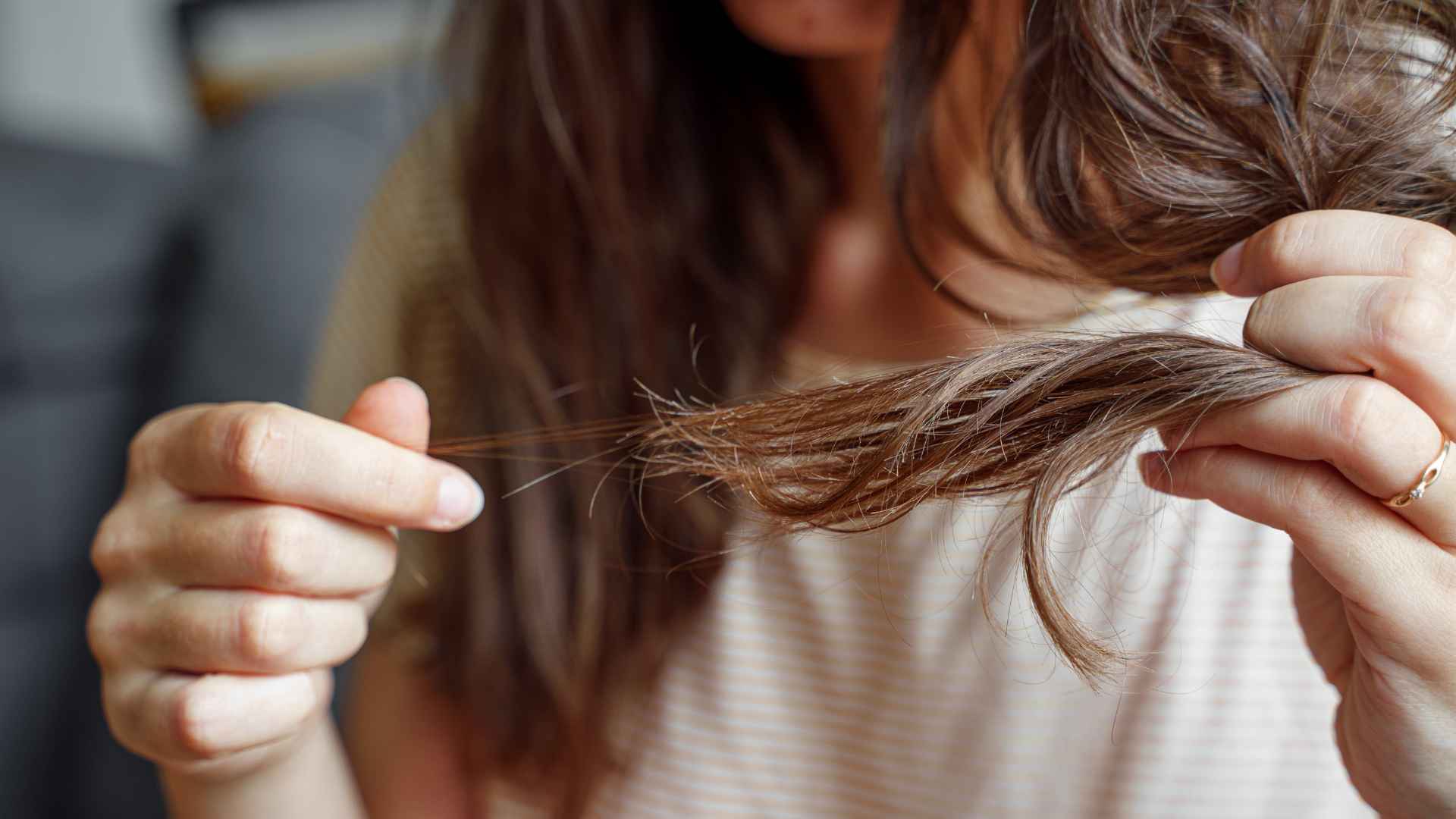Are you concerned about the potential connection between diabetes and hair loss? Many individuals wonder about the impact of diabetes on their hair health. In this article, we aim to address this concern and emphasize the importance of understanding the relationship between diabetes and hair health.
Diabetes is a prevalent chronic condition that affects millions of people worldwide. It is characterized by high blood sugar levels resulting from either insufficient insulin production or impaired insulin function. While diabetes primarily affects the body’s ability to regulate blood sugar, its influence can extend to various aspects of health, including hair health.
Hair loss is a common concern among individuals with diabetes, and understanding the relationship between the two can provide valuable insights into managing both conditions effectively. In this article, we will explore the potential link between diabetes and hair loss, the underlying mechanisms, and strategies for maintaining healthy hair while managing diabetes.
By delving into this topic, we aim to shed light on the relationship between diabetes and hair health, empowering individuals with knowledge to better understand and address any hair-related concerns they may have.
So, let’s delve into this important connection and explore the influence of diabetes on hair health, as well as the strategies to support optimal hair well-being while managing diabetes.
Diabetes and Hair Health:

Diabetes is a chronic condition that can have a significant impact on overall health. It affects the body’s ability to regulate blood sugar levels, leading to a range of potential effects on various body systems. Let’s explore how diabetes can indirectly affect hair health:
- Blood Circulation: Diabetes can impair blood circulation throughout the body. Elevated blood sugar levels can damage blood vessels and hinder blood flow, including to the scalp and hair follicles. Inadequate blood supply to the hair follicles can affect their nourishment and function, potentially leading to hair thinning or hair loss.
- Hormone Levels: Hormonal imbalances can occur in individuals with diabetes. Insulin resistance or insufficient insulin production can disrupt the normal hormone balance in the body. Hormones play a role in hair growth and health, and any disturbances can potentially contribute to hair-related issues.
- Immune System Dysfunction: Diabetes can affect the immune system, leading to impaired immune function. This can make individuals more susceptible to infections, including those affecting the scalp and hair follicles. Inflammation and autoimmune responses associated with diabetes can also contribute to hair loss conditions such as alopecia areata.
While the exact mechanisms by which diabetes impacts hair health are not fully understood, these indirect effects can contribute to hair-related issues in individuals with diabetes. It’s important to note that the impact on hair health can vary among individuals, and not everyone with diabetes will experience hair loss or hair thinning.
Managing diabetes effectively through proper blood sugar control, lifestyle modifications, and appropriate medical care can help minimize the potential effects on hair health. Additionally, adopting strategies to promote overall well-being, including maintaining a healthy diet, managing stress levels, and engaging in regular physical activity, can positively impact hair health as well.
If you have concerns about your hair health in relation to diabetes, it is advisable to consult with healthcare professionals, such as doctors or dermatologists. They can evaluate your specific situation, provide guidance, and recommend appropriate interventions to address any hair-related issues you may be experiencing.
Remember, while diabetes can indirectly impact hair health, proactive management of diabetes and overall well-being can contribute to maintaining optimal hair health and supporting overall health and quality of life.
Understanding Hair Loss:
Hair loss, also known as alopecia, refers to the partial or complete loss of hair from the scalp or other parts of the body. It can occur due to various factors, including:
- Genetics: The most common cause of hair loss is hereditary or genetic factors. This type of hair loss, known as androgenetic alopecia or male/female pattern baldness, is more common in men but can also affect women. It is characterized by a gradual thinning of hair over time.
- Hormonal Imbalances: Hormonal imbalances can contribute to hair loss. For example, in conditions such as polycystic ovary syndrome (PCOS) or certain thyroid disorders, hormonal fluctuations can disrupt the normal hair growth cycle and result in hair thinning or shedding.
- Medical Conditions: Various medical conditions can cause hair loss. These include autoimmune disorders like alopecia areata, where the immune system mistakenly attacks hair follicles, as well as scalp infections, scalp psoriasis, and certain skin conditions that affect the scalp.
- Lifestyle Factors: Certain lifestyle choices and practices can contribute to hair loss. Examples include excessive hairstyling or treatments that involve heat, chemicals, or traction on the hair, which can damage the hair follicles. Nutritional deficiencies, particularly inadequate protein or iron intake, can also impact hair health.
While these are common causes of hair loss, it is important to explore the potential link between diabetes and hair loss in individuals with diabetes. Diabetes can indirectly contribute to hair loss due to its impact on blood circulation, hormonal balance, and immune system function, as discussed earlier.
It’s worth noting that hair loss can have multiple contributing factors, and in some cases, it may be a combination of factors rather than solely related to diabetes. It is essential to consult with healthcare professionals, such as doctors or dermatologists, to evaluate the specific factors contributing to hair loss in individuals with diabetes.
Understanding the underlying causes of hair loss is crucial for determining the most appropriate treatment and management strategies. Healthcare professionals can assess your medical history, conduct necessary tests, and provide personalized guidance to address any hair loss concerns you may have.
Remember, addressing hair loss requires a comprehensive approach that takes into account the specific factors contributing to the condition. By understanding the potential link between diabetes and hair loss and seeking appropriate medical advice, individuals can take proactive steps towards managing both their diabetes and their hair health effectively.
The Relationship Between Diabetes and Hair Loss:

The potential mechanisms through which diabetes may contribute to hair loss involve several factors related to uncontrolled diabetes. Let’s explore these mechanisms:
- Poor Blood Circulation: Uncontrolled diabetes can lead to damage to blood vessels and impair blood circulation throughout the body, including the scalp. Inadequate blood flow to the hair follicles can result in reduced nourishment and compromised hair growth, potentially leading to hair loss.
- Nutrient Deficiencies: Diabetes can disrupt the body’s ability to properly absorb and utilize nutrients, including those essential for hair health. Poor blood sugar control and associated complications can lead to nutrient deficiencies, such as deficiencies in vitamins, minerals, and proteins. Insufficient nutrient supply to the hair follicles can contribute to hair loss.
- Hormonal Imbalances: Diabetes can disrupt the hormonal balance in the body. Insulin resistance or insufficient insulin production can lead to hormonal imbalances, including imbalances in androgens (e.g., testosterone) and insulin-like growth factors. These hormonal imbalances can negatively impact the hair growth cycle and contribute to hair loss.
- Diabetes-related Conditions: Certain conditions associated with diabetes can also contribute to hair loss. For instance, individuals with diabetes may have an increased risk of developing autoimmune disorders, such as alopecia areata, where the immune system mistakenly attacks hair follicles. Additionally, scalp infections or conditions related to poor glycemic control, such as seborrheic dermatitis or folliculitis, can also cause hair loss.
It’s important to note that the relationship between diabetes and hair loss can be complex, and not all individuals with diabetes will experience hair loss. Factors such as the severity and duration of diabetes, individual genetic predispositions, overall health, and management of diabetes can influence the potential impact on hair health.
Maintaining proper blood sugar control, adopting a balanced and nutrient-rich diet, managing stress levels, and following a comprehensive diabetes care plan are essential for minimizing the risk of hair loss associated with diabetes. Regular monitoring and management of diabetes-related conditions, such as autoimmune disorders or scalp infections, can also play a role in maintaining hair health.
If you are experiencing hair loss or have concerns about the potential impact of diabetes on your hair health, consulting with healthcare professionals, such as doctors or dermatologists, is advisable. They can evaluate your specific situation, provide guidance, and recommend appropriate interventions to address any hair-related issues you may be facing.
By understanding the potential mechanisms through which diabetes may contribute to hair loss, individuals with diabetes can take proactive steps towards managing their diabetes and supporting optimal hair health.
Types of Hair Loss Associated with Diabetes:

There are specific types of hair loss that may be associated with diabetes. Let’s explore these conditions and their potential connection to the underlying metabolic and immune dysregulation seen in individuals with diabetes:
- Androgenetic Alopecia (Pattern Hair Loss): Androgenetic alopecia, commonly known as pattern hair loss, is the most common type of hair loss in both men and women. It is influenced by genetic factors and hormonal imbalances, including androgens. While not directly caused by diabetes, individuals with diabetes may experience a higher prevalence or earlier onset of androgenetic alopecia due to the hormonal changes and metabolic dysregulation associated with the condition.
- Alopecia Areata: Alopecia areata is an autoimmune disorder where the immune system mistakenly attacks the hair follicles, resulting in patchy hair loss. Individuals with diabetes may have an increased risk of developing autoimmune disorders, including alopecia areata. The underlying immune dysregulation in diabetes may contribute to the onset or progression of this condition.
- Telogen Effluvium: Telogen effluvium is a temporary hair loss condition characterized by excessive shedding of hair. It occurs when a significant number of hair follicles prematurely enter the resting phase (telogen) and subsequently shed. Although telogen effluvium can have various triggers, including physiological stressors, individuals with poorly controlled diabetes may be more susceptible to this condition due to the metabolic and hormonal imbalances associated with diabetes.
It’s important to note that while these types of hair loss may be associated with diabetes, they can also occur in individuals without diabetes. The relationship between diabetes and these hair loss conditions is complex and influenced by various factors, including genetic predisposition, overall health, and diabetes management.
The underlying metabolic dysregulation and immune dysfunction observed in diabetes may contribute to the manifestation or exacerbation of these hair loss conditions. However, it’s essential to consult with healthcare professionals, such as doctors or dermatologists, for a proper evaluation and diagnosis of the specific hair loss condition and its potential association with diabetes.
By understanding the potential types of hair loss associated with diabetes and their connection to metabolic and immune dysregulation, individuals with diabetes can be more aware of their hair health and seek appropriate medical advice if needed. Healthcare professionals can provide a comprehensive assessment, guidance, and treatment options tailored to the individual’s specific situation and help manage both diabetes and hair loss effectively.
Managing Hair Loss and Diabetes:

Managing diabetes effectively is crucial not only for overall health but also for maintaining hair health. By adopting certain lifestyle factors and seeking appropriate medical care, individuals can minimize the potential impact of diabetes on hair loss. Here are some key considerations:
- Effective Diabetes Management: Properly managing diabetes plays a significant role in supporting overall health, including hair health. This involves regular monitoring of blood sugar levels, adhering to prescribed medications or insulin therapy, and following a comprehensive diabetes care plan recommended by healthcare professionals. Maintaining optimal blood sugar control can help minimize the potential impact of diabetes on hair health.
- Balanced Diet: A balanced diet is essential for maintaining optimal hair health. Individuals with diabetes should focus on consuming a well-rounded diet that includes a variety of nutrient-rich foods. Emphasize whole grains, lean proteins, healthy fats, and plenty of fruits and vegetables. Adequate intake of vitamins, minerals, and proteins can help support hair growth and minimize the risk of nutrient deficiencies that may contribute to hair loss.
- Blood Sugar Control: Maintaining stable blood sugar levels is crucial for overall health, including hair health. Fluctuating blood sugar levels can negatively impact hair follicles and contribute to hair loss. Follow the recommended dietary guidelines for managing diabetes, monitor carbohydrate intake, and work with healthcare professionals to establish a suitable meal plan that promotes steady blood sugar control.
- Regular Medical Care: Regular medical care is essential for individuals with diabetes. Seek regular check-ups with healthcare professionals, such as doctors or endocrinologists, to monitor your diabetes management, assess your overall health, and address any concerns related to hair loss. They can provide personalized guidance, adjust treatment plans if necessary, and offer specific recommendations to manage diabetes-related hair loss.
- Consultation with Healthcare Professionals: If you are experiencing hair loss or have concerns about the potential impact of diabetes on your hair health, it is advisable to consult with healthcare professionals, such as doctors or dermatologists, who specialize in hair and scalp conditions. They can evaluate your specific situation, perform necessary tests or examinations, and provide personalized guidance on managing hair loss associated with diabetes.
Remember, managing diabetes effectively is key to maintaining overall health, including hair health. By maintaining a balanced diet, managing blood sugar levels, seeking regular medical care, and consulting with healthcare professionals, individuals with diabetes can minimize the potential impact of diabetes on hair loss and support optimal hair health.
Every individual’s situation is unique, and personalized guidance from healthcare professionals is crucial in managing diabetes-related hair loss. They can provide a comprehensive assessment, offer specific recommendations, and create a tailored management plan to address your hair-related concerns while effectively managing diabetes.
By incorporating these strategies and seeking appropriate medical care, individuals can take proactive steps to manage both diabetes and hair loss, promoting overall well-being and quality of life.
Watch losing hair & diabetic? Regrow your hair with this | Video
Top 5 FAQs and answers related to does diabetes cause hair loss
Does diabetes cause hair loss?
While diabetes itself does not directly cause hair loss, uncontrolled diabetes and associated factors may contribute to hair loss. Conditions such as poor blood circulation, hormonal imbalances, nutrient deficiencies, and certain diabetes-related conditions can impact hair health and potentially lead to hair loss in individuals with diabetes.
How can I prevent hair loss if I have diabetes?
Managing your diabetes effectively is crucial for maintaining overall health, including hair health. This involves proper blood sugar control through medication, lifestyle modifications, and regular medical care. Additionally, maintaining a balanced diet, managing stress levels, and seeking guidance from healthcare professionals can help minimize the potential impact of diabetes on hair loss.
Will hair loss improve once I control my diabetes?
Improving your diabetes management and achieving stable blood sugar control can have positive effects on hair health. However, it’s important to note that hair loss conditions can have various causes, and results may vary among individuals. Consult with healthcare professionals to determine the specific factors contributing to your hair loss and to develop a personalized management plan.
What can I do if I am experiencing hair loss due to diabetes?
If you are experiencing hair loss related to diabetes, it is advisable to consult with healthcare professionals, such as doctors or dermatologists. They can evaluate your specific situation, perform necessary tests, and provide personalized guidance on managing your hair loss. Treatment options may include addressing underlying factors, nutrient supplementation, or other appropriate interventions.
Can diabetes-related hair loss be reversed?
The potential for reversing hair loss associated with diabetes depends on various factors, including the underlying cause and individual response to treatment. By effectively managing your diabetes and adopting strategies to support hair health, such as maintaining a balanced diet and following medical recommendations, you can promote hair growth and minimize further hair loss. However, it’s important to consult with healthcare professionals for an accurate diagnosis and appropriate treatment options.
Conclusion:

In conclusion, let’s recap the key points discussed in this article regarding the potential link between diabetes and hair loss:
- While diabetes itself does not directly cause hair loss, uncontrolled diabetes and associated factors can contribute to hair loss.
- Factors such as poor blood circulation, hormonal imbalances, nutrient deficiencies, and certain diabetes-related conditions may impact hair health and potentially lead to hair loss in individuals with diabetes.
- Effective diabetes management is crucial for overall health, including hair health. Proper blood sugar control, balanced diet, regular medical care, and adopting a healthy lifestyle can minimize the potential impact of diabetes on hair loss.
- Seeking guidance from healthcare professionals, such as doctors or dermatologists, is important for a proper evaluation and management of diabetes-related hair loss. They can provide personalized recommendations, assess underlying factors, and develop a tailored management plan.
- While managing diabetes effectively can support hair health, it’s important to remember that hair loss can have multiple contributing factors. Consulting with healthcare professionals helps to identify the specific factors involved and to receive appropriate guidance for managing hair loss.
By effectively managing diabetes and adopting strategies to support hair health, individuals can minimize the potential impact of diabetes on hair loss and promote overall well-being. Regular medical care, a balanced diet, stress management, and personalized guidance from healthcare professionals are crucial in managing diabetes-related hair loss.
If you are experiencing hair loss or have concerns about the potential impact of diabetes on your hair health, consult with healthcare professionals for a comprehensive evaluation and personalized management plan. They can provide the necessary support, guidance, and interventions to address your specific situation and help manage both diabetes and hair loss effectively.
Remember, taking proactive steps towards managing diabetes and seeking appropriate medical care are essential for maintaining overall health, including hair health.
Please share this Does Diabetes Cause Hair Loss? Understanding the Effects with your friends and do a comment below about your feedback.
We will meet you on next article.
Until you can read, Is Hair Loss a Sign of Pregnancy: Treatments and Causes